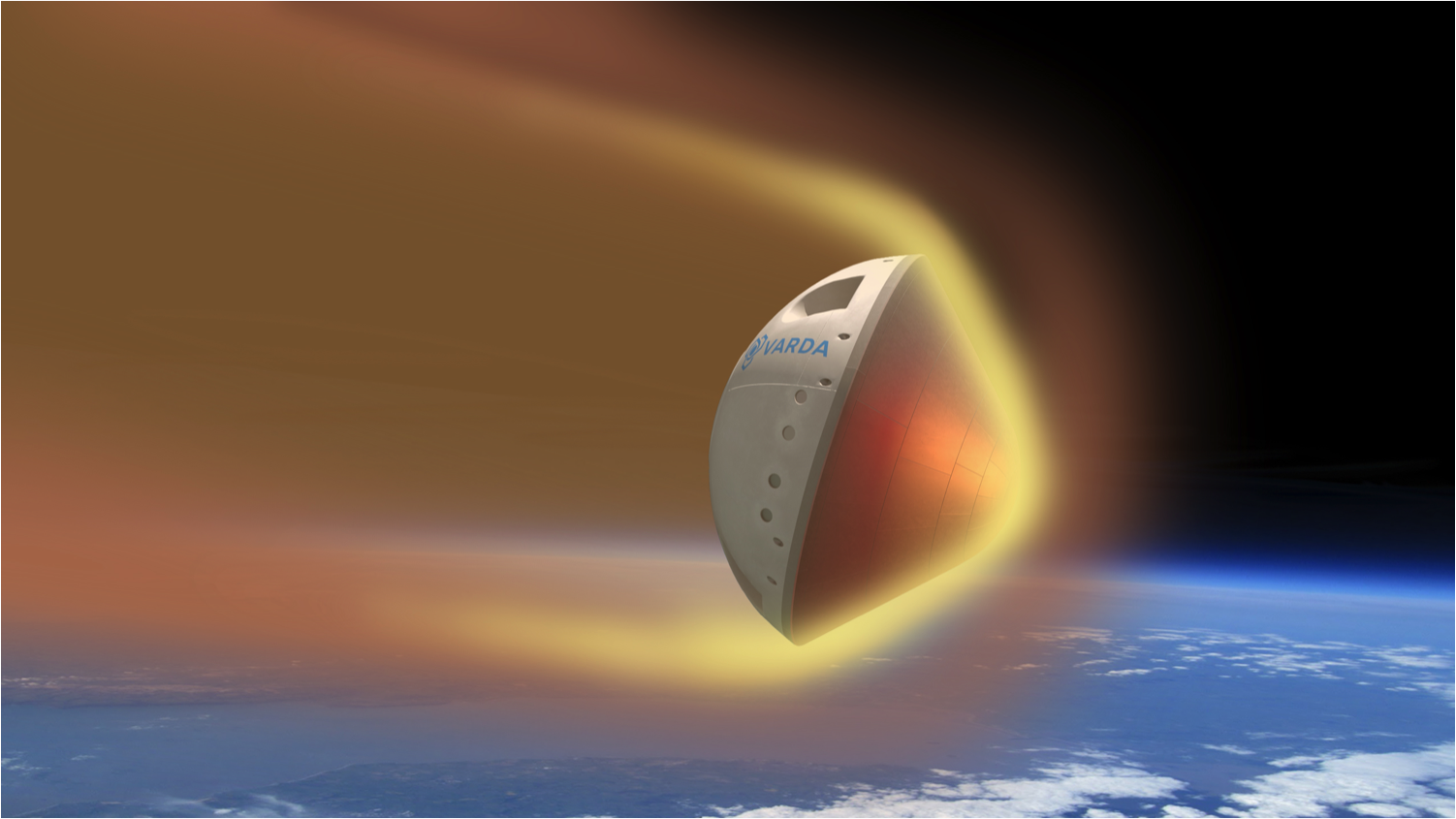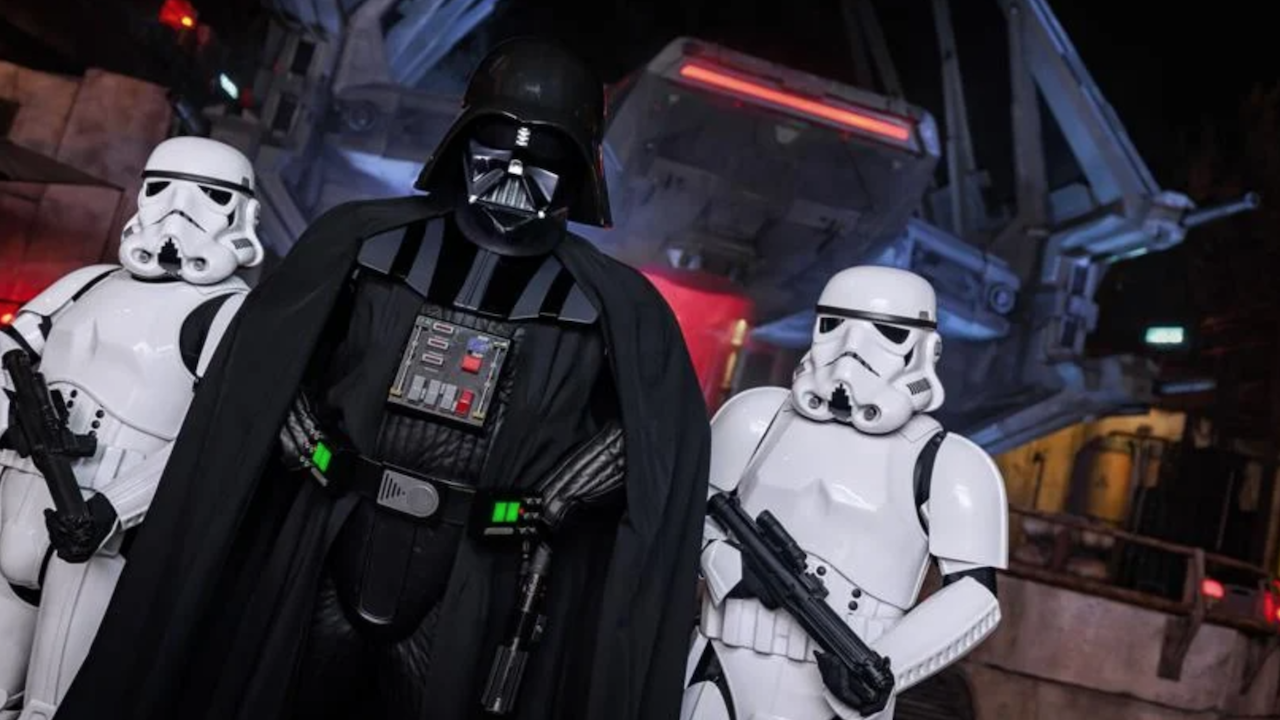Private Varda Space capsule returns to Earth with space-grown antiviral drug aboard

A California startup's first in-space manufacturing effort is in the books.
The capsule from Varda Space Industries' W-1 mission landed in northern Utah this afternoon (Feb. 21), bringing down to Earth crystals of an antiviral drug that were grown in orbit.
The success makes Varda just the third company to recover an intact spacecraft from orbit. The other two are aerospace giants SpaceX (with its Dragon vehicles) and Boeing (with its Starliner capsule).
Related: In-space manufacturing company Varda plans to land its reentry capsules in Australia: report
Varda plans to be a major player in off-Earth manufacturing, a production option that offers some intriguing advantages, according to the company.
"Processing materials in microgravity, or the near-weightless conditions found in space, offers a unique environment not available through terrestrial processing," Varda's website states. "These benefits primarily stem from the lack of convection and sedimentation forces, as well as the ability to form more perfect structures due to the absence of gravitational stresses."
Private companies have returned space-made products to Earth before. For example, fellow California company Made In Space (which was later acquired by Redwire) brought home the high-value optical fiber ZBLAN multiple times.
Breaking space news, the latest updates on rocket launches, skywatching events and more!
But Made In Space did its manufacturing aboard the International Space Station and hauled the ZBLAN down in SpaceX Dragon capsules. Varda wants to make the process more efficient and cost-effective with its small, uncrewed capsules, which serve as both mini-factories and return vehicles.
The W-1 test mission gave the company its first chance to strut its stuff. Varda's 3-foot-wide (0.9 meters) conical capsule — integrated into a Rocket Lab Photon spacecraft, which provided power, propulsion, navigation and other services — lifted off in June 2023 on SpaceX's Transporter-8 rideshare mission.
The W-1 capsule contained the materials necessary to grow crystals of Ritonavir, an antiviral drug used to treat HIV and hepatitis C. This cargo was chosen advisedly, as pharmaceuticals are one of the high-value products that could potentially help spark and nurture the off-Earth manufacturing industry.
Just a week after Transporter-8's liftoff, Varda announced that its crystal-growing experiment had worked.
"Over the last day, for the first time ever, orbital drug processing happened outside of a government-run space station. Our crystallization of Ritonavir appears to have been nominal. This is our first step in commercializing microgravity and building an industrial park in LEO [low Earth orbit]," the company said in a June 30 post on Twitter (now known as X).
Varda planned to bring these pioneering crystals home after just a month or two in orbit. But the company had problems getting the required reentry approval from the U.S. Federal Aviation Administration and the U.S. military, which operates the targeted landing zones — the Utah Test and Training Range (UTTR) and the neighboring Dugway Proving Ground, both of which are west of Salt Lake City.
This area is no stranger to returning spacecraft. Last September, for example, the return capsule of NASA's OSIRIS-REx mission touched down at the UTTR, carrying more than 4 ounces (120 grams) of material plucked from the near-Earth asteroid Bennu.
Varda's approval finally came through last week, and Rocket Lab began gearing up for W-1's reentry maneuvers. The Photon performed a handful of engine burns over the past few days that set the spacecraft and the W-1 capsule on their proper trajectory back down toward our planet.
The Photon was not built for reentry, so most of it likely burned up on the way down. But the W-1 capsule survived its fiery trip through Earth's atmosphere, eventually touching down under parachutes at the UTTR today at 4:40 p.m. EST (2140 GMT), according to Varda.
"From here, our capsule will be transported back to our facilities in Los Angeles for post-mission analysis," the company wrote in an update on X this afternoon, just minutes after touchdown.
"The Ritonavir vials onboard the spacecraft will be shipped to our collaborators Improved Pharma for post-flight characterization," Varda added. "Additionally, data collected throughout the entirety of the capsule's flight — including a portion where we reached hypersonic speeds — will be shared with the Air Force and NASA under a contract Varda has with those agencies."

Michael Wall is a Senior Space Writer with Space.com and joined the team in 2010. He primarily covers exoplanets, spaceflight and military space, but has been known to dabble in the space art beat. His book about the search for alien life, "Out There," was published on Nov. 13, 2018. Before becoming a science writer, Michael worked as a herpetologist and wildlife biologist. He has a Ph.D. in evolutionary biology from the University of Sydney, Australia, a bachelor's degree from the University of Arizona, and a graduate certificate in science writing from the University of California, Santa Cruz. To find out what his latest project is, you can follow Michael on Twitter.
